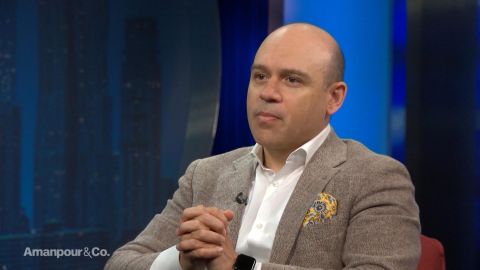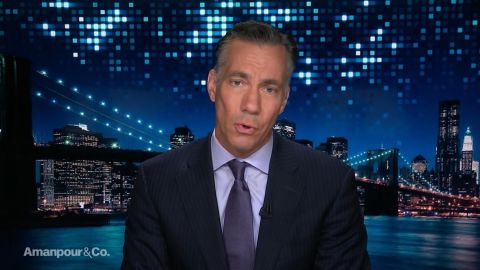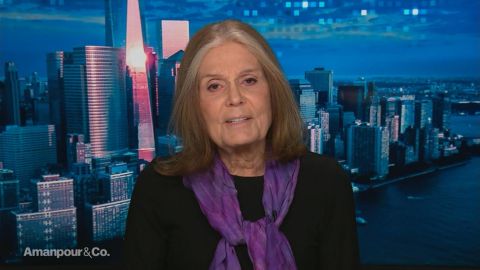Read Transcript EXPAND
JIM SCIUTTO, CNN CHIEF NATIONAL SECURITY CORRESPONDENT: There is no firewall between the public and private sector in China for companies like this. Whether they’re called state-owned enterprises or not, they have deep connections to the government, deep ownership. And expectation from the Chinese government is that they will operate by China’s rules and with China’s national interests and heart. And, listen, U.S. intelligence agencies make these assessments based on intelligence. The fact they have concerns about backdoors with technology manufactured by Huawei doesn’t come from nowhere. So, it is a genuine concern.
Now, of course, the question is, is the president going to hold the line on the national security side in the midst of this larger trade, trade negotiation? Is he offering up the possibility? Well, maybe we can let this go if we make a deal here. You remember a few months ago with ZTE, a Chinese mobile phone maker, the president, in fact, threw a life line to the company, as something of an olive branch in trying prove — improve, rather, relations between the two countries. And when he did that, there were loads of folks in the intelligence agencies who were not very happy with that. So, we would have to see how much the president holds the line both on trade and national security here.
CHRISTIANE AMANPOUR: Indeed. Let me just quickly ask you, you referred to the fact Huawei’s chief financial officer has been detained and continues to be detained in Canada. The United States wants her because they say she violated the sanctions policy by selling to Iran, components or other such things to Iran. Connect the dots, if you like, on this whole China, Huawei, Iran national security issue.
SCIUTTO: So, this was a big push for the U.S. to get China on board with sanctions against Iran and pressure point, back during the Obama administration to lead to the negotiating table, and lo and behold we have the nuclear agreement that you and I both covered for many months and years leading up to it. So, the issues are connected, you had to get China on board. Now, the allegation here is that China was seeking to skirt continuing U.S. sanctions which have continued under this administration because the Trump administration pulled out of the deal. But it’s interesting again, the issue we were talking about just a couple moments ago, the president has again brought up the possibility that this legal proceeding here proceeding here, there are U.S. laws which the U.S. says this Chinese executive has violated, brought up the possibility to saying, “Well, listen. Again, if we could negotiate and make progress on these other economic issues, perhaps I could let that go.”
And I will tell you, I speak to people in the U.S. Justice Department who pursued this case under U.S. law very aggressively, who are certainly not comfortable with that possibility there. But again, they are connected.
About This Episode EXPAND
Christiane Amanpour speaks with Jim Sciutto about U.S./China relations; and Gloria Steinem and David Eisenberg about the Alabama abortion ban. Hari Sreenivasan speaks with Raj Kumar about the Trump administration’s immigration plans and the humanitarian crisis developing on the United States’ southern border.
LEARN MORE



